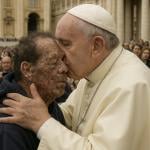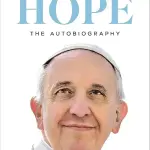
There is nothing subtle about what happened to my blog this weekend. It exploded.
Against all norms — i.e., weekends are supposed to be quiet and forgettable — and expectations, my post on Fr. Z took off and indicates that July 2013 will be a record month.
My pragmatic feelings about this are wholly positive. The end of summer teaching term brings a pay gap. I could use the spare change that the extra web-traffic generates on the Patheos payment model.
But I have other feelings about it, too. Mixed feelings. I’m feeling defeated.
+++
Long before philosophy, I fell in love with homiletics and apologetics. Preaching, testimony, scripture and exegesis, music ministry — all the tools of the Charismatic Renewal, combined with the oral tradition of the Catholic Liturgy. Even drama and extemporaneous prayer. This is what I was raised in. In a strict and devout home, I even related to my parents and peers in that rhetoric and style. It was the equivalent of everything from social capital to permission to do things. The politics of piety.
In my public Jr. High school, I found a natural niche in competitive forensics. I did okay at poetry recitation but I excelled in impromptu speaking. In High School, I became a serious and dedicated Lincoln Douglas debater, splitting my time with persuasive extemporaneous speaking in the Texas U.I.L. league and domestic extemp in the National Forensics League.
Forensics was my secondary education. My curriculum was totally devoted to the craft of debate. Everything I did related back to it somehow. At one point I was failing art class because I skipped class to work on my cases in the library. My debate coach had to ask my teacher to pass me so I could compete at State.
I fell in love with philosophy not because of the pure ideas, but, instead, because of the power these ideas had to win arguments. It was like magic. This paired well with my aforementioned upbringing in the Church and I used it there to become a rather effective catechist and lay minister while still in high school. I courted every argument I could find. Especially over religion. The son of an evangelist, I was on a collision course with “great things” in the Church at a very young age — at least that’s what everyone told me.
As I’ve grown, I have in many ways remained the same. I am still fond, too fond, of debate. I remain a better orator than I am a writer. I once wrote entirely through my mouth and ears, but I found that my rhetorical strategies didn’t transfer all the time. So I’ve dedicated significant time to becoming a better writer, to balancing this side of the communicative equation.
I’ve analyzed the irrational, intuitive, and performative aspects of debate: the presentation of the argument, the value of story and allegory, the pathos of emotion and passion. The efficacy of restraint. I seen the limits of debate, too. I’ve hurt people. I’ve seen myself become a monster, thirsty for the blood, humiliation, and shame, prideful of the fear I saw in the eyes of those who knew not to cross me. The loneliness.
This is not melodrama; it is real. The theatrics have, over time, built a long line of wild stories that sound funny today, but still ring hollow in my heart. I’ve yelled at people and belittled them. I’ve also made myself impossible to listen to. Unbearable.
One of the committee members on my dissertation committee advised me to never reveal my debating past, that I should keep it secret. “Otherwise,” he said, “no one will hear you, because they won’t trust you.” Being a debater means being tricky and witty and controlling yourself just enough to lose control at the right spot. Timing is everything. It also means lying routinely — even when you are telling the truth.
My mother was the first one to tell this to me. “This isn’t a debate; you can’t debate your way out of this.” Everyone close to me has learned when to ignore me, even it they do it lovingly. Even I have learned that lesson.
+++
My greatest struggle as a teacher is to give my students reason to trust me without losing their ability to distrust me. I try to keep a sub-narrative going, where I give a running commentary that subverts or lightens the content I am presenting as Gospel truth, which often has the reverse effect. It sometimes gets tangled with the main narrative and become terribly confusing. When class is done, I’ll look at the board behind me, filled with tattered and misspelled words, abbreviations, lines and circles, and nonsense and I laugh while, deep down, I feel empty, crazy, and insecure. Who am I fooling?
Of course, even as I type this heartfelt confession, you should suspect that I am about to make a move. Don’t let your guard down. I’m not doing this with good intentions. Self-disclosure is my jab. It softens and distracts the opponent and prepares them for a knock out.
There is no escape.
+++
Over time these reflections have also softened my younger edges and caused me to fall in love with philosophy for better reasons. I am bored by things that once seemed exciting. The cheap wins and the verbal gymnastics. I am more genuinely uncertain. I can invite criticism without feeling like it is asking for a sparring partner. I’ve changed my style to reflect a meandering, jagged process of thought, not reducible to an externalized argument. I prefer to try and sound funny, if I can. Woody Allen.
I usually keep a syllogism in my head when I am trying to argue for something, and I have a sweet tooth for dry, Anglo-analytic philosophy. I value their sense of clarity, but I distrust their self assuredness.
+++
When I wrote my response to Fr. Z’s post on Saturday, I tried to create a very narrow line of reasoning, one that would avoid the usual nonsense that is typical when Nazis are a part of the conversation. I figured it would be a rather boring, clunky, and unappetizing post, that would only be useful as a small tool with the capacity to call him out for what he did wrong, but not more than that.
Fr. Z removed the photo and the prose I took issue with, which I find gratifying and encouraging. But the fanfare and the shower of comments and fireworks is what I am left with. And the traffic, for which I am grateful.
I don’t like everything I write here, but I think that, from time to time, I manage to show some things that are worthwhile to think about. I try to avoid polemics but I embrace provocation, for the sake of starting a discussion that is usually rooted in an inner struggle I am going through. For instance, the whole “hating Catholic stuff” routine: the root cause of that line of thought comes from the experience of not being able to critique anything that was within my range of religious affiliations, a long time spent trying to bend my intuitions to conform to the version of the Catholic Church I had grown up in until I couldn’t do it anymore. The honest affection that brought me.
More on that some other time.
The point remains that this weekend’s post was one of the worst bits of prose I’ve composed and certainly one of the more petty issues I’ve taken up. I don’t take it back because I think it still stands intact, with perhaps a few minor clarifications. I think am right; the proposition I defended is true. But it is only analytically true. It does not follow to think that analytic truth is the same thing as the Truth. I should have been more clear about that.
Nonetheless, readers flocked to the post. I had a great time in the comment boxes, something I rarely get to do. At one point I was watching a late-night TNT rerun of Gladiator while dipping through comments and it hit me:
http://www.youtube.com/watch?v=FsqJFIJ5lLs“Are you not entertained? Are. You. Not. Entertained. Is this not why you are here?”
This question was not only directed at my readers, it was pointing right at ME.
There was at least some dignity in being a gladiator. A debater. A monster. But here I found myself no different than the vulgar hoard, clamoring for more blood. I was entertaining myself and, in the process, stimulating the depraved, objectifying process of entertainment.
Let me be clear. Fr. Z is a shock jock, mostly. His readership is vast and touchy. They like to be provoked and react with speed and fury. But they are no different, really, than any of us. We’re just the parasitic counter-narrative. Perhaps I am worse. A wanna-be.
I need the traffic and the popularity because it makes this whole enterprise viable. So I am not going to quit or stop or shame myself into not stooping again to take a shot at a Google search term or a headline or a hot topic that I don’t really care about. There is value in writing about things you don’t want to write about.
But let’s not mistake this for something else. Let’s be honest and painful about it. Let’s not become self-deluded about the fact that for many of us, the Catholic Church is just another pet interest we use to consume news and information and feel indignant about. God works in mysterious ways, but we needn’t pretend that this mystery is always sublimely scented in roses and holy oil. Sometimes muddy water smells like excrement.
Fr. Z won and he will continue to win because he is no less guilty than any one of us. Perhaps there are some saintly bloggers out there. I’m not one of them. And I suspect that they have almost no readers.
It seems that my readership is growing and with it will come the duty of entertainment and discipline of being unserious and fussing a lot — even if it is fussing about fussing.
So be it. You win, Fr. Z. I’ll join you. May God have mercy on our souls.
Come now, everyone! Comment and play and make merry and tell me how terribly wonderful and stupid I am. Amuse me! Amuse yourself and the people you do not know!
Let the games begin!















